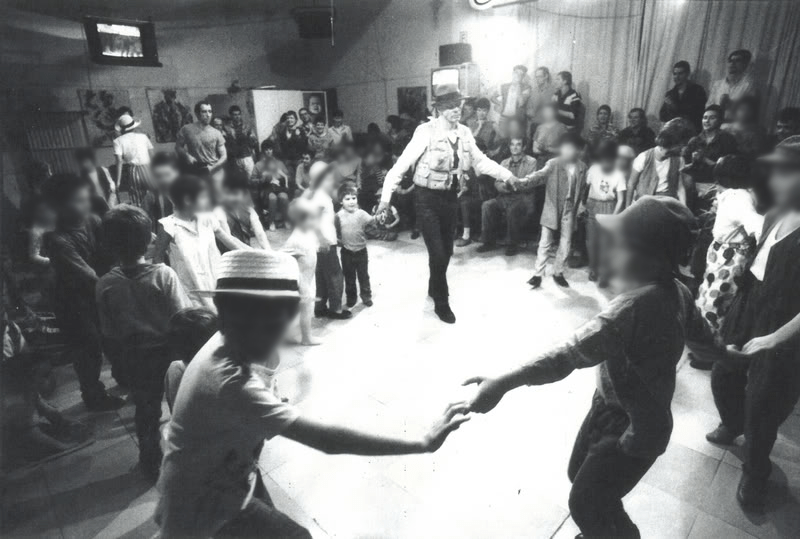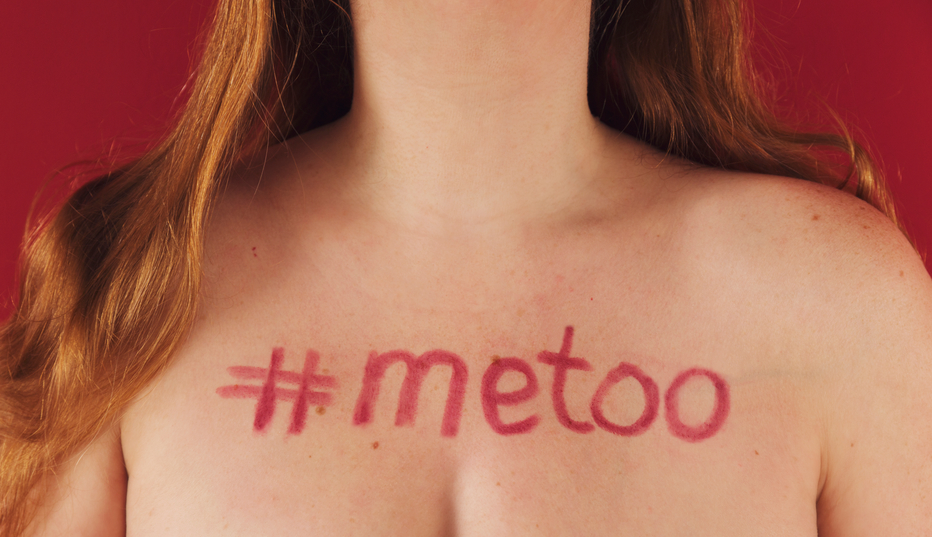Brett Rossi is a model, entertainer, dancer, pornographic actress, and stand-up comedian based in Los Angeles.
Over the past seven months, we’ve experienced a public reckoning surrounding sexual assault and harassment, particularly in the workplace. Today, #MeToo is much more than a hashtag, it’s an internationally recognized movement—one that will likely go down in history as responsible for changing how women are treated not only at work, but in general.
Videos by VICE
Meanwhile, however, Trump has implemented FOSTA-SESTA, an anti-sex trafficking bill that voluntary sex workers have very publicly argued will hugely compromise their safety while they work by shutting down online services that facilitate their safety and forcing them onto the street. Even before these bills passed, sex workers were 400 percent more likely to be murdered than the average woman, according to the Sex Workers Outreach Project.
This is violence against women on the job in its most extreme form. And yet, there is no public outcry on the level of when Aziz Ansari allegedly attempted to coerce a date into sex, Louis CK allegedly masturbated in front of women without their consent, or when Kevin Spacey was accused of sexual harassment and assault. We should be angry about those things. But why do they get tied to #MeToo while harassment towards and violence against sex workers are largely left out?
As we all know, this current #MeToo moment began in Hollywood. Stories of harassment and assault ripped through Tinsel Town like the unexpected Montecito, California floods, exposing some of its biggest womanizing scumbag executives, directors, and A-list celebrities. Eventually, as #MeToo quickly outgrew its movie industry confines, the Hollywood-specific #TimesUp emerged, bringing A-list celebrities together to fight the ridiculous misogyny in their field.
Recently, actresses such as Thandie Newton and Asia Argento have spoken up about feeling excluded from the group of women at the helm of the Time’s Up campaign. And women like Rose McGowan and Amber Rose have called out both Time’s Up and #MeToo for not being inclusive enough of regular people, for forgetting the “strippers and porn stars and gay boys that get raped all the time,” in Rose’s words.
I agree. If things are actually going to change, we need to start caring more about all the people who don’t walk the red carpet, too. And I’m specifically concerned about the actresses who work in the porn industry, the escorts, the sex workers, and all the women in the sex industry—who are at high risk, but rarely get taken seriously and are almost never offered a seat at the table.
It appears that there has been a line drawn in the sand between the “mainstream” and the sex industry. But sex workers are workers. And sex workers who get assaulted on the job deserve to say “#MeToo” and “Time’s Up” just as much as anyone else. In part because of the lack of respect we receive, women who work in the sex industry face incredibly high rates of violence on the job, particularly women of color, trans women, and women living in low-income areas. Right now, we should be focusing on the most marginal and disenfranchised survivors. And yet, this massive group is being largely overlooked.

Fun fact: In 2017, Pornhub averaged 81 million visitors per day. That’s 15 million more than the population of the entire United Kingdom.
Why is it, then, that when sex workers are abused, manipulated, or taken advantage of, we suddenly barely have a platform?
The answer is simple: Because cultural misconceptions and intentional ignorance about sex work do a fantastic job of implying that women who work in the sex industry simply cannot be assaulted. If we get hurt or raped or killed, the assumption goes, it’s our fault, we’re doing it to ourselves. Because if a woman takes off her clothes for a living, she must have no moral compass, her character must flawed, she must from a broken home, she must be mentally unstable.
How does it make sense that, for women who take off their clothes for a living, assault and rape seem to simply not count?
Women in the sex industry are constantly dehumanized by society’s irrational and sex-negative standards. Even most who claim to be progressive accept the enduring logic: Any woman who disrupts the cultural myth of American purity should be quarantined to a lifetime of shame.
There’s been a lot of talk of shame in this #MeToo moment, because shame seems to be one of the primary reasons that people chose not to come out about surviving sexual assault or harassment sooner. The reality of working in the sex industry is constantly being shamed and vigorously gas lit by authorities, judges, legal counsel, and pretty much everyone else—even when you are telling the truth. Women in the sex industry are always assumed to be guilty, even though we are society’s guilty pleasure behind closed doors.
In 2015, I came out publicly with allegations of assault and battery, emotional distress, false imprisonment, and negligence against actor Charlie Sheen, who I had previously been engaged to. It became a high profile case, and the backlash against me was atrocious. I felt immediately categorized as a gold digging, lying whore who couldn’t possibly be telling the truth simply because I make money taking my clothes off. It seemed like no one cared that I was telling them I had been both sexually and physically assaulted by a powerful man. I was just a porn star.
After a tabloid reported that it had obtained a recording of Sheen discussing in grave detail how he wanted to pay someone to kick my face in and have me killed, I was granted an emergency restraining order against him. But on the day I was supposed to appear in court, I had to be in another state for a gig. We all have to work, after all. When I couldn’t show up, Sheen’s powerful attorney revealed to the judge that I was away in order to appear at a nightclub, billed as a “world famous adult film star”—on top of calling me an “extortionist” in the press and other attacks on my character. The judge later chose to reject my request for a permanent restraining order against Sheen. And to me, it’s clear it was because of the ways my career was used against me.
But how does it make sense that, for women who take off their clothes for a living, assault and rape seem to simply not count? Let me remind you: Rape and sexual assault are the same across the board. Consent can be withheld by anyone at any time, no matter what they do for a living.
Today, I wonder if the media might have reacted differently if I had come out about my abuse during this #MeToo moment. Would my voice have been heard like everyone else currently claiming abuse by a Hollywood A-lister? Would I have received the same public support?
For More Stories Like This, Sign Up for Our Newsletter
I’d like to think that perhaps I would have, but the fact that violence against women working in the sex industry continues to occur mostly unchecked, leaves me highly skeptical of the #MeToo movement in it’s entirety. There is one thing that’s for sure: If this movement is going to be truly effective, it must be truly inclusive.
Women who work in the sex industry deserve to be seen simply as women, and treated as living, breathing, humans with equal rights. We deserve fair trials and fair chances at justice. We deserve to stand up and scream “#MeToo” and be fully supported by not only the law, but movements that are supposed to be for all survivors.
More
From VICE
-

OnlyFans model and girlfriend experience provider Maddison Fox relaxes at home. -

Sean Combs arriving at the Costume Institute Benefit at The Metropolitan Museum of Art in 2017. Photo by Marechal Aurore/ABACA/Shutterstock. -

Children at the Friedrichshof Commune dance with renowned artist Joseph Beuys. Inka, aged four, holds his right hand. -

